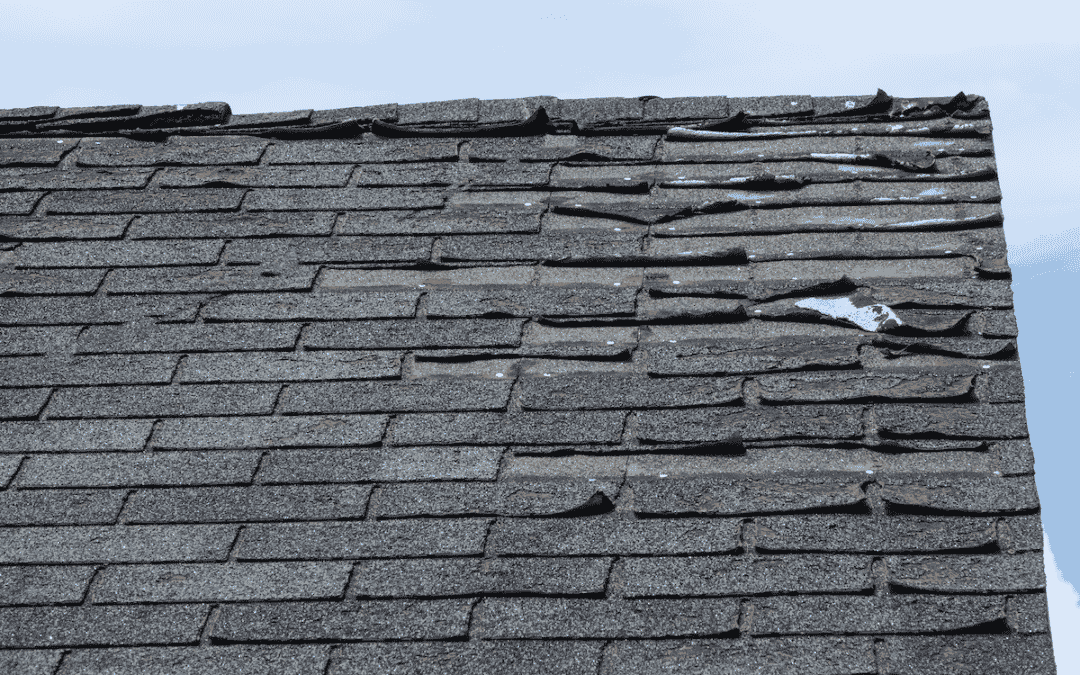When the weather gets rough, understanding how our homes will cope can often be challenging. Your roof is one of the key aspects of your home that will take a direct hit in more extreme weather conditions like hurricanes and heavy storms causing Hurricane roof damage.
You must know what damage may come from these natural occurrences, so you know exactly how to deal with them when they’re over. Let’s discuss how hurricanes/bad weather can impact your roof – from potential Hurricane roof damage to safety tips, which means you should feel prepared no matter what comes your way!
What is Hurricane Roof Damage?
Wind Impact
One of the most common issues caused by extreme weather conditions such as hurricanes is damage from wind. If a hurricane reaches your area, it will likely bring winds up to 150 mph, which can easily tear shingles off your roof or cause other Hurricane roof damage to its structure.
This might include broken tiles, dislodged gutters, downspouts, and even collapsed sections of your roof. Therefore, having your roof inspected after a hurricane or other wind-related event is important, as any Hurricane roof damage left unchecked can cause further problems.
Water Damage
When hurricanes and other bad weather hit, any Hurricane roof damage to your roof from wind can be compounded by water. For example, if there are broken tiles or missing shingles, rainwater will begin to accumulate on your roof, which can lead to leaking.
Leaking water is a nuisance and can lead to significant structural damage over time, so having any damaged areas repaired is essential. You should also check for water Hurricane roof damage in other places around your home; if the roof isn’t properly sealed, water can easily find its way inside and cause further problems.
Hail Damage
Hail storms can cause a great deal of destruction to your roof and the rest of your home. The extent of Hurricane roof damage caused by hail depends on the size and intensity of the hailstones, with small pea-sized hailstones causing minor cosmetic damages, such as light dents in shingles or metal roofs. In contrast, large hailstones can cause much more significant damage, such as punctures and cracks.
Hailstones can also break off granules from shingles, exposing them to the elements and making it easier for water to penetrate through the roof’s barrier of protection. Hailstones can even knock out shingles or dislodge them from the roof’s structure, leaving them open and vulnerable to further Hurricane roof damage.
It’s essential to inspect your roof regularly to ensure that it’s not experiencing any signs of hail Hurricane roof damage. For example, suppose you notice any missing or damaged shingles, holes in your gutters or downspouts, or slivers of shingle granules on the ground. In that case, you should contact a roofing company to come and inspect the area so that any necessary repairs can be made.
Humidity/Mold
Another potential issue from extreme weather conditions is mold and mildew. High humidity levels and standing water on the roof can provide the perfect environment for mold growth – and it’s not just an ugly cosmetic issue. Mold can cause major structural damage to your roof if left unchecked, so it’s important to take the proper steps to prevent it.
The best way to deal with potential mold is to keep your roof as clean and dry as possible, especially after a storm or period of high humidity.
In addition, check your gutters regularly for any standing water that might be present and have them cleaned out if necessary. It’s also a good idea to have your roof regularly inspected by a professional so that any signs of mold or mildew can be spotted before they become an issue.
Sun Damage
While the sun may not seem like a major threat to your roof, it can cause significant damage over time. The sun’s ultraviolet (UV) rays can weaken and eventually break down the shingles on your roof, causing them to become brittle and less effective at protecting your home from moisture. In addition, UV rays can make it easier for algae and mold to grow on the roof, which can create additional problems.
To prevent sun Hurricane roof damage to your roof, ensure that your shingles are replaced regularly (every 10-15 years). You should also trim any trees or shrubs around your home so that they don’t cast shade over your roof, and use a roofing sealant to help protect your shingles from UV Hurricane roof damage.
Contact Christian Brothers Roofing for a full-service roofing contractor in the Atlanta GA area. We have years of experience helping homeowners like you with their roofing needs, and our team is dedicated to providing quality work at an affordable price.
Contact us today to schedule a consultation and find out how we can help protect your home from extreme weather conditions.

